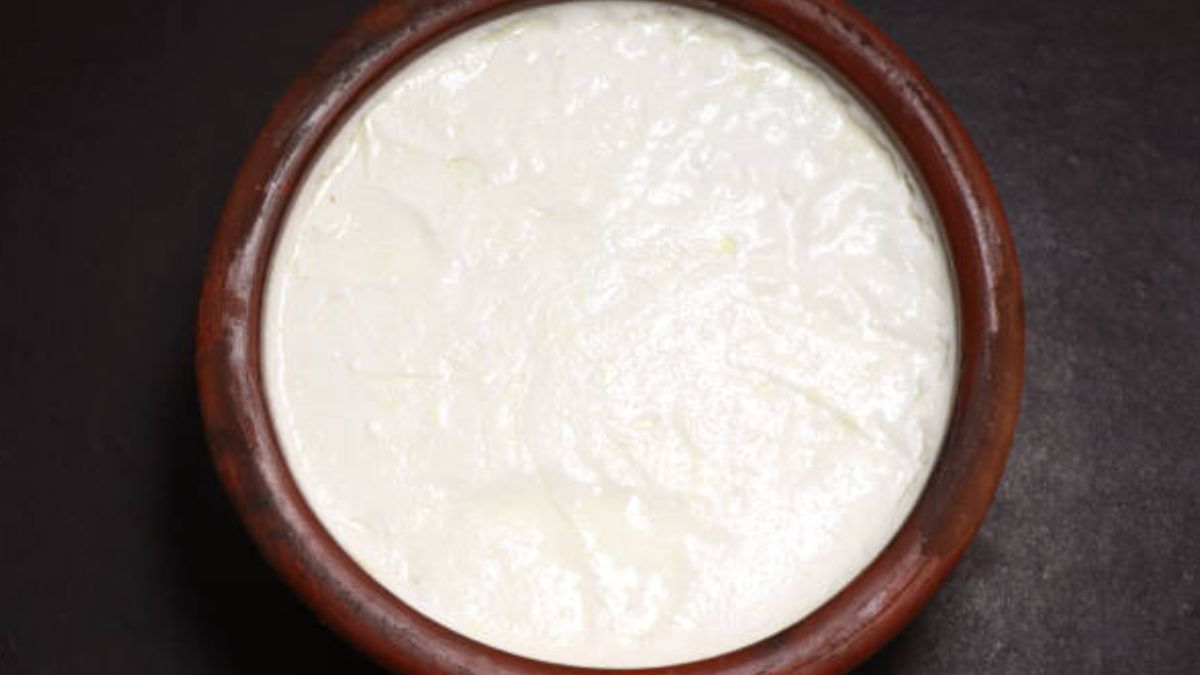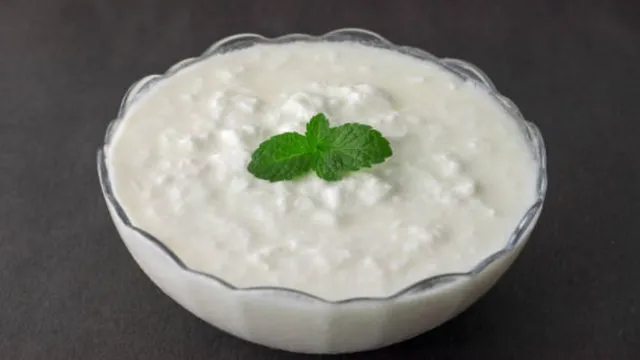- By Iram Hussain
- Thu, 10 Jul 2025 12:27 PM (IST)
- Source:JND
Curd, a staple in Indian cuisine is an integral component of every traditional thali, offering a refreshing contrast to the richness of accompanying dishes. Its versatility has led to the creation of numerous curd-based delicacies, each with its unique flavour profile and texture. However, despite its widespread popularity, curd's consumption has been shrouded in a long-standing traditional belief, particularly during the monsoon season. As the rains bring a welcome respite from the scorching summer heat, they also usher in a period of heightened humidity and dampness.
It is during this time that the conventional wisdom surrounding curd consumption comes into play, raising questions about its suitability for the monsoon season. What could be the reasoning behind this age-old belief and should we reassess our curd-eating habits during the rains?
Why Curd Is A 'NO' In Rainy Season?
Ayurvedic Perspective
The traditional practice of enjoying curd with meals may not be suitable for everyone, particularly during the rainy season. Ayurvedic principles suggest that curd consumption can disrupt the balance of all three doshas - Vatta, Pitha and Kapha. As the rainy season aggravates Vatta and Pitha doshas, curd consumption may exacerbate the imbalance, leaving the body vulnerable to seasonal ailments.
Impact On Digestion
According to Ayurveda, curd's inherently cool nature can smother the digestive flames or agni when eaten unadulterated. This can spark a chain reaction of digestive discomfort including bloating, gas and indigestion, To counteract this, Ayurvedic tradition recommends adding a pinch of warming spices like black pepper or roasted cumin or a drizzle of honey to curd as eating it plain can slow down digestion.
ALSO READ: 5 Top Probiotic Drinks That Heal Your Gut And Boost Digestion
Impact On Respiratory System
Its consumption can trigger excessive mucus production, potentially unleashing a flurry of respiratory problems including cold, cough and congestion. The humid weather further amplifies this risk, creating an ideal breeding ground for ailments and allergies to flourish.

Is it safe to eat curd in monsoon? (Image Credits: istock)
Best Foods For Gut Health
Ginger
Ginger's potent anti-inflammatory properties make it a gut-friendly superhero. During monsoons, ginger's warming effects help combat digestive woes while its antioxidant properties shield the gut from harm.
Garlic
Raw garlic is a monsoon must-have! Its active compound, allicin, exhibits potent antimicrobial properties, safeguarding the gut against pesky pathogens.
Banana
Rich in potassium, bananas help regulate fluid balance, easing digestive discomfort. Their prebiotic fibres also nourish good gut bacteria, promoting a harmonious gut ecosystem.
ALSO READ: Does Combining Curd And Mangoes Create A Healthy Snack?
Turmeric
Turmeric's wonder compound, curcumin shields the gut from inflammation and oxidative stress. This golden spice also enhances gut barrier function, preventing toxins from seeping in.
Oats
Oats' soluble fibres help regulate bowel movements, preventing constipation. Their prebiotic properties also feed good gut bacteria, supporting a balanced gut microbiome.
Leafy Greens
Rich in antioxidants, fibre and vitamins, greens like kale help shield the gut from damage, promote regular bowel movements and support the growth of beneficial gut bacteria.
Disclaimer: This content, including suggestions and advice, provides generic information only. It is in no way a substitute for qualified medical opinion. Always consult a specialist or your own doctor for more information before making any drastic changes in your lifestyle.

